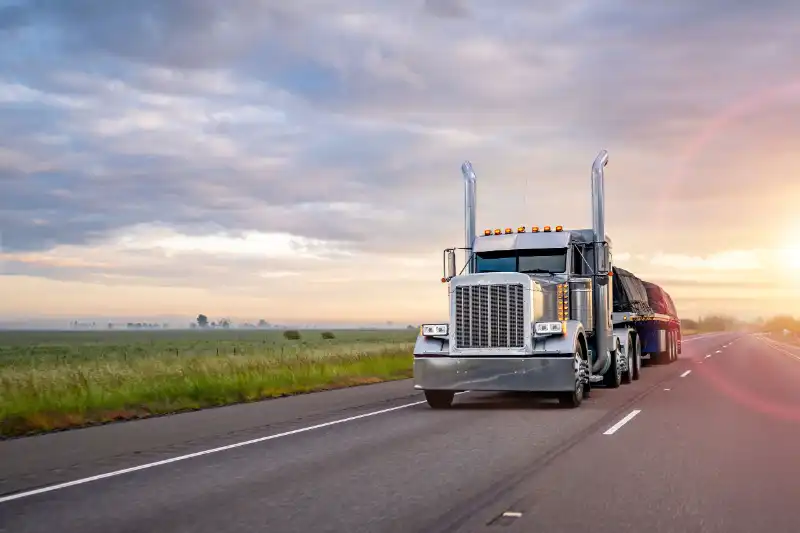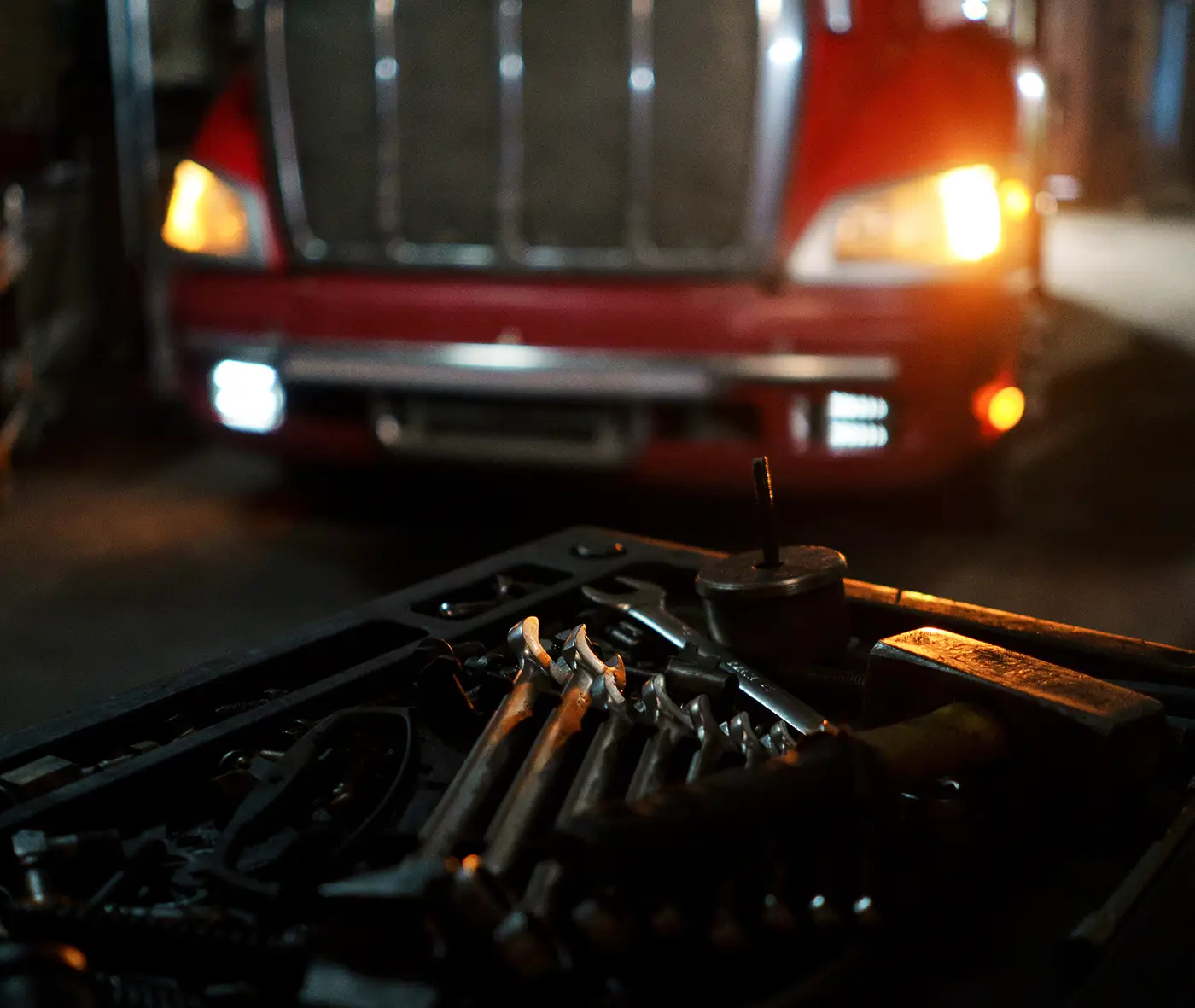.jpeg)
Keep Your Cargo Safe and Secure: Ensure Proper Trailer Loading Techniques!
Learn proper trailer loading techniques to keep your cargo safe. Master weight distribution and securing methods for a safe journey every time.

When it comes to hauling freight, proper trailer loading techniques are paramount for both safety and efficiency. Whether you're transporting light loads across town or heavy cargo across state lines, how you load your trailer can make all the difference. Improperly loaded trailers can lead to dangerous situations on the road, increased wear and tear on your equipment, and costly delays. At B&B Truck & Trailer Repair, we’ve seen it all, and we’re here to share our expert tips to ensure your cargo stays safe and secure.
The Importance of Proper Weight Distribution
One of the most critical aspects of trailer loading is weight distribution. When cargo is evenly distributed across the trailer, it promotes stability and prevents the trailer from swaying, tipping, or becoming unbalanced. A well-balanced load reduces stress on the trailer axles, tires, and suspension system. Start by placing the heaviest items over the trailer’s axles. This helps to lower the center of gravity and ensures that the trailer remains stable while in motion. Avoid placing too much weight at the front or rear of the trailer, as this can cause excessive strain on the trailer hitch or lead to dangerous swaying.
Securing the Load: Straps, Chains, and Load Bars
Once your cargo is properly positioned, securing it is the next step. Straps, chains, and load bars are essential tools for this job. Each of these has a specific use depending on the type of cargo you're hauling.
Straps are versatile and easy to use, making them ideal for securing smaller items or loads that don’t require heavy-duty restraints. Ensure that the straps are rated for the weight of your load and that they are tightly secured to prevent any movement during transit. When tightening straps, avoid over-tensioning, which can damage the cargo.
For heavier loads, chains provide the strength needed to keep everything in place. Chains should be securely fastened using binders and tightened enough to prevent slack without over-stressing the load. Remember to cross the chains under the trailer tongue when securing the load to the bed, as this provides extra stability and prevents the cargo from shifting.
Load bars are another valuable tool, particularly for enclosed trailers. They can be placed between the walls of the trailer to keep stacked items in place and prevent them from shifting during transit. Make sure load bars are correctly positioned and tight enough to hold the cargo securely.
Understanding Load Limits and Compliance
Every trailer has a maximum load limit, also known as the Gross Vehicle Weight Rating (GVWR), which should never be exceeded. Overloading a trailer not only puts undue stress on the braking system and suspension but also increases the risk of tire blowouts and accidents. Always check the trailer’s GVWR and ensure your load does not exceed this limit.
In addition to the GVWR, be mindful of the axle weight ratings. Distributing too much weight on a single axle can lead to mechanical failure and is a common cause of breakdowns. Ensuring that the load is evenly distributed across all axles is crucial for safe and compliant operation.
It's also important to comply with DOT regulations regarding cargo securement. These regulations outline the requirements for securing different types of cargo and are designed to ensure that loads are transported safely. Non-compliance can result in hefty fines, so make sure your securement methods meet all legal requirements.
Double-Check Before Hitting the Road
Before you hit the road, take the time to do a final inspection of your trailer and its load. Walk around the trailer to check that all straps, chains, and load bars are secure. Verify that the cargo weight is within limits, and make sure that the trailer lights and brakes are functioning properly. This quick check can prevent major issues down the line.
Additionally, ensure that tire pressure is at the correct level for the load you're carrying. Underinflated tires can cause the trailer to sway, while overinflated tires can increase the risk of blowouts. Proper tire maintenance is a simple yet effective way to enhance safety and improve fuel efficiency.
The Role of Driver Training
Even with the best loading techniques, the safety of the cargo ultimately rests in the hands of the driver. Proper driver training is essential to ensure that the load remains secure throughout the journey. Drivers should be trained to recognize the signs of an unbalanced load, how to adjust straps and chains on the fly, and how to safely operate a loaded trailer under various road conditions.
Training should also include emergency procedures for dealing with shifting loads or trailer sway. Knowing how to react in these situations can prevent accidents and keep both the driver and the cargo safe. Teach your drivers to stay away from bad driving habits like sudden acceleration or constant braking.
Consider Environmental Factors
Be mindful of environmental factors such as weather and road conditions. Wet or icy roads can increase the likelihood of the trailer skidding or jackknifing, making it all the more important to have a well-secured load. In windy conditions, an improperly loaded trailer is more susceptible to being pushed off course.
Adjust your loading and securing methods based on the conditions you expect to encounter. For instance, in rainy weather, double-check that all cargo is covered and that tarps are secured to prevent water damage or loss of cargo.
Conclusion
Ensuring proper trailer loading techniques is essential for the safety of your cargo, the driver, and other road users. By focusing on weight distribution, securement methods, load limits, and driver training, you can significantly reduce the risk of accidents and equipment damage. At B&B Truck & Trailer Repair, we understand the importance of keeping your cargo safe and secure. Whether you're a seasoned driver or new to the industry, these best practices will help you deliver your load safely every time. For more info about fleets, check out the benefits of fleet services.
More Articles

Why Is Regular Fleet Maintenance Crucial for Business Success?

5 Mistakes to Avoid When Choosing a Repair Shop

Maximize Your Fleet Uptime with Proactive Maintenance!
Contact Us
Visit our full-service truck & trailer repair shop in Colona, Illinois, or take advantage of our mobile services offered throughout the Quad Cities area, including Moline & Rock Island, IL & Davenport & Bettendorf, IA. Give us a call, drop by the shop, or fill out our service request form!


